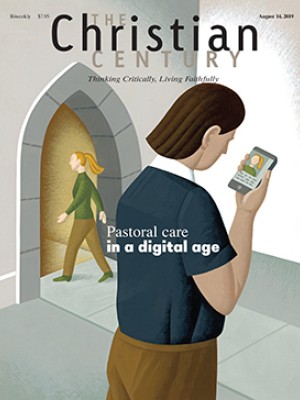In Ireland, a Citizens’ Assembly helped shape public policy. Could it work here?
Cultivating a democracy that deliberates

In 2016 Ireland’s parliament launched an exercise in deliberative democracy called the Citizens’ Assembly. The assembly was composed of a chairperson and 99 citizens selected at random to be representative of the Irish electorate in age, gender, social class, and region. The group was given a series of issues—including abortion and climate change—to study over a period of 12 weeks. Members heard from expert witnesses, discussed the issues, and finally voted on policy proposals.
By all accounts, the citizens rose to the occasion. They felt honored to be asked to participate, took their jobs seriously, and (with the help of facilitators) listened and deliberated carefully. They used the meetings not to press their opinions but to learn and enter into dialogue. By focusing on deliberation and not debate, the assembly was able to move past normally entrenched positions.
Read our latest issue or browse back issues.
The group reached an impressive consensus on a variety of topics, and the results of those deliberations have had political impact. The Irish parliament has used the citizens’ work to shape its own, as in the case of a landmark climate action plan. The assembly also guided public conversation on abortion: when a referendum on abortion law took place in May 2018, the result mirrored the assembly’s recommendation.
It’s difficult to imagine a citizens’ assembly working in precisely the same manner in the United States. For one thing, the US is a much larger and more diverse society than Ireland. One can easily imagine the skeptical questions raised by any effort to organize a national citizens’ assembly: Can the nation’s diversity truly be reflected in the assembly? Which experts will be chosen to present evidence, and who will choose them? It’s also hard to imagine the work of such a panel being taken seriously in the current partisan atmosphere that infects almost every aspect of American political life, including Congress, where proposals would presumably be taken up.
Nevertheless, the Citizens’ Assembly shows that real deliberation and action can happen when people come together face to face for education and conversation. Ordinary people are able to listen to diverse opinions, consider the nuances of issues, and make substantive recommendations.
Imagine if states and cities organized such assemblies to grapple with their most pressing and controversial problems. Imagine the cumulative effect of many citizens’ assemblies across the country helping to shape public conversations and recognize the deliberative skills of citizens. At a moment when political discourse seems to happen via tweet and when confidence in democratic process seems to be waning across the world, the Irish example has something to teach Americans—as well as inspire them.
A version of this article appears in the print edition under the title “Deliberate citizens."






